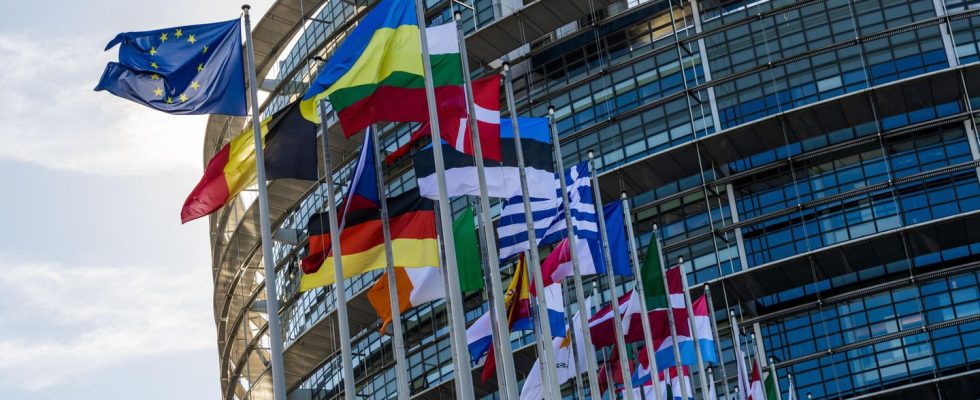Mirgation
European Parliament agrees to stricter asylum rules
The EU wants to “better protect its external borders” and quickly deport migrants with no chance of being accepted
© Philipp von Ditfurth / DPA
The EU parliamentarians had been discussing this for years, but now there has been an agreement: European asylum rules will be tightened. Until the end it was unclear what the result would be.
The European Parliament has cleared the way for the controversial EU asylum reform. After years of discussions, MPs voted on Wednesday in Brussels for the planned package that would extend the previous rules for migration into the European Union should be significantly tightened.
“Repatriate migrants quickly”
EU Interior Commissioner Ylva Johansson wrote in the online service
Parliament President Roberta Metsola wrote on X that the EU was making “history”. The pact provides for asylum procedures directly at Europe’s external borders as well as accelerated returns, including to “safe” third countries.
Stricter rules for asylum seekers from safe countries of origin
In particular, there are plans to deal much more harshly with people from countries that are considered relatively safe. Until a decision on the asylum application is made, people should be able to be accommodated in detention camps under prison-like conditions for up to twelve weeks.
People who come from a country with a recognition rate of less than 20 percent, as well as those who are considered a threat to public safety, will in future have to go through such a border procedure. According to the plan, arriving people can be registered with fingerprints and photos, also to check whether they pose a threat to public safety.
Solidarity mechanism for Italy and Cyprus
To relieve the burden on main arrival countries such as Italy, Greece and Cyprus, the EU is providing for a mandatory solidarity mechanism. The EU countries still have to finally approve the asylum pact, but this is considered a formality. Many MPs were dissatisfied with the compromise negotiated in December. It was therefore unclear until the end whether the plenary session would agree.

